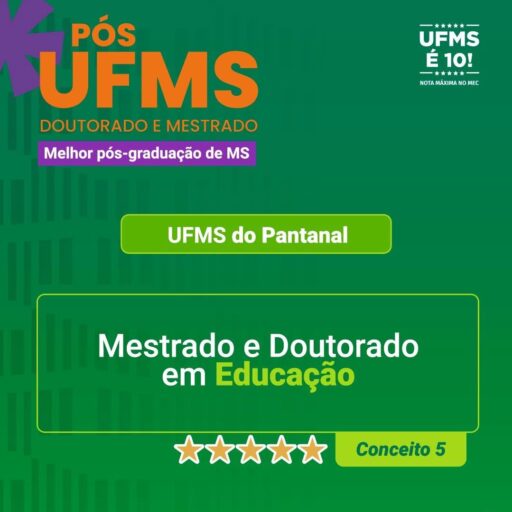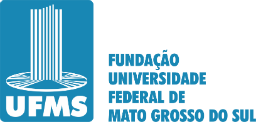MÁRCIA CRISTINA GONÇALVES DE SOUZA SILVA – A Alfabetização na Base Nacional Comum Curricular: Um Estudo Sobre as Habilidades Prescritas para o 1º e 2º Ano dos Anos Iniciais do Ensino Fundamental
RESUMO
Esta pesquisa faz parte do curso de Mestrado do Programa de Pós-graduação em Educação (PPGE) do Câmpus do Pantanal (CPAN), da Universidade Federal de Mato Grosso do Sul (UFMS), área de concentração em Educação Social, na Linha de Pesquisa “Formação do Educador e Diversidade” e está vinculada ao projeto de pesquisa “Iniciação e constituição da docência em contextos de alfabetização: formação e práticas”. O estudo tem como objeto a Base Nacional Comum Curricular (BNCC) com enfoque na alfabetização e o processo de consolidação apresentados na versão final do documento, buscando responder a seguinte questão: que conceito de alfabetização é defendido no documento, considerando-se a antecipação da consolidação do processo de alfabetização para o 2º ano? O objetivo geral consistiu em analisar o conceito de alfabetização defendido na BNCC e de consolidação do processo de alfabetização. E como objetivos específicos buscou-se: (i) analisar as proposições constantes na seção 4.1 do documento, que aborda a área da Língua Portuguesa para o Ensino Fundamental; (ii) analisar o caderno sobre as habilidades, buscando entender se os direcionamentos se voltam para alfabetização mecânica ou para a autonomia do domínio da língua; (iii) identificar os posicionamentos e/ou as orientações sobre o processo de consolidação da alfabetização. Em uma abordagem qualitativa, realizou-se um estudo documental do componente curricular Língua Portuguesa do Ensino Fundamental – Anos Iniciais, da área de Linguagens, a partir da análise de conteúdo da vertente francesa, com as seguintes categorias: ‘conceito de alfabetização’ e ‘consolidação da alfabetização’. O estudo apontou fragilidades conceituais e inadequadas ao evidenciar ênfase na decodificação e codificação, como também, a associação entre o processo de alfabetização e a ortografização. Foram identificadas habilidades voltadas para a autonomia da língua, no entanto, estão reduzidas à consciência fonológica, não valorizando a criticidade, a reflexão e as diversas formas interpretativas que a criança pode ter por meio do universo da leitura e da escrita. Com relação à consolidação da alfabetização, constatou-se contradição e incoerência, uma vez que o documento estabelece a antecipação da consolidação da alfabetização sem considerar o letramento, tampouco sinalizar a presença de práticas de leitura e escrita que faça sentido aos alunos. Aponta-se, portanto, a necessidade de uma nova política que seja capaz de discutir e propor democraticamente o processo de alfabetização como algo indissociável ao letramento.
Palavras-chave: Leitura e Escrita. Alfabetização e Letramento. Currículo Comum. Diretrizes Curriculares.
ABSTRACT
This research is part of the Master’s Degree Program in Education (PPGE) from Pantanal Campus (CPAN) of the Federal University of Mato Grosso do Sul (UFMS), included in the research line ‘Educator Training and Diversity’. It is focused on Social Education and integrated in the research project “Initiation and constitution of teaching in literacy contexts: training and practices”. The object of this study is the National Common Curricular Base (BNCC) with a focus on basic literacy and the consolidation process presented in the final version of the document, seeking to answer the following question: considering the anticipation to consolidate the basic literacy process for the 2nd grade, what concept of basic literacy is expressed in the document?. This study aimed to analyze the concept of basic literacy expressed in the BNCC, in counterpoint to the anticipation to consolidate the basic literacy process. As specific objectives, we sought: (a) to verify what is focused on a mechanical basic literacy process and what is directed to the autonomy of the language mastery according to the Portuguese language skills for the 1st and 2nd grades; (b) to identify the divergences due to the anticipation to consolidate the basic literacy for the 2nd grade. In a qualitative approach, a desktop study was carried out about the Portuguese Language curricular component of Elementary School – Initial Years of the Language area, based on the analysis of the content from French perspective, with the following categories: ‘concept of basic literacy’ and ‘consolidation of basic literacy’. The study pointed out conceptual and inadequate fragilities when emphasizing decoding and codification, as well as the association between the basic literacy process and orthography. Skills focused on language autonomy were identified, however they are reduced to phonological awareness, not valuing the criticality, reflection, and various interpretative forms that children can have through the universe of reading and writing. Contradiction and incoherence were observed regarding the consolidation of basic literacy, since the document establishes the anticipation of the consolidation without considering literacy, neither indicates the presence of reading or writing practices that make sense to the students. Therefore, it is pointed out the need for a new policy could discuss and democratically propose the initial reading process as something inseparable from literacy.
Keywords: Reading and Writing. Literacy and Literacy. Common Curriculum. Curricular Guidelines.


